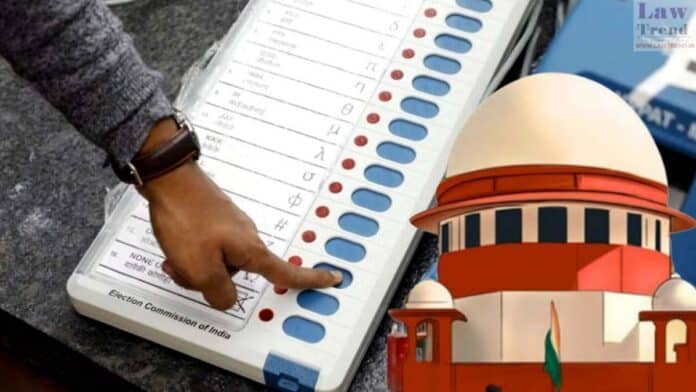The Supreme Court of India, on Friday, decided that the plea concerning the verification of electronic voting machines (EVMs) will be handled by a bench led by Justice Dipankar Datta in January 2025. The announcement was made by a bench comprising Chief Justice of India Sanjiv Khanna and Justice Sanjay Kumar, which directed that the matter be heard in the week starting January 20, 2025.
The plea in question, filed by former Haryana minister and five-time MLA Karan Singh Dalal, along with Lakhan Kumar Singla, calls for a definitive policy on the verification of EVMs. This follows a previous Supreme Court verdict from April, where a bench including Justice Khanna and Justice Datta upheld the use of EVMs, dismissing requests for a return to paper ballots. The court had deemed suspicions of EVM manipulation as “unfounded,” highlighting the devices’ role in preventing booth capturing and fraudulent voting.
Senior advocate Maninder Singh, representing the Election Commission, argued for the dismissal of the plea, pointing out that similar petitions had been rejected in the past. The case was initially refused by Justices Vikram Nath and P B Varale on December 13, leading to its escalation to the Chief Justice’s bench.
The petitioners, who finished second in their respective constituencies, are not contesting the election results themselves but are seeking a clear and robust process for EVM verification. They urge the implementation of the Supreme Court’s April 26 decision in ‘Association for Democratic Reforms versus Union of India’, which permits unsuccessful candidates from second and third places to request the verification of microcontroller chips in five percent of EVMs per assembly constituency, against a fee.
The petition highlights the Election Commission’s failure to establish a policy for this verification, criticizing the current standard operating procedures as inadequate for examining potential tampering of EVM memory. The petitioners have called for a directive from the Supreme Court for the Election Commission to establish this verification protocol within eight weeks.




